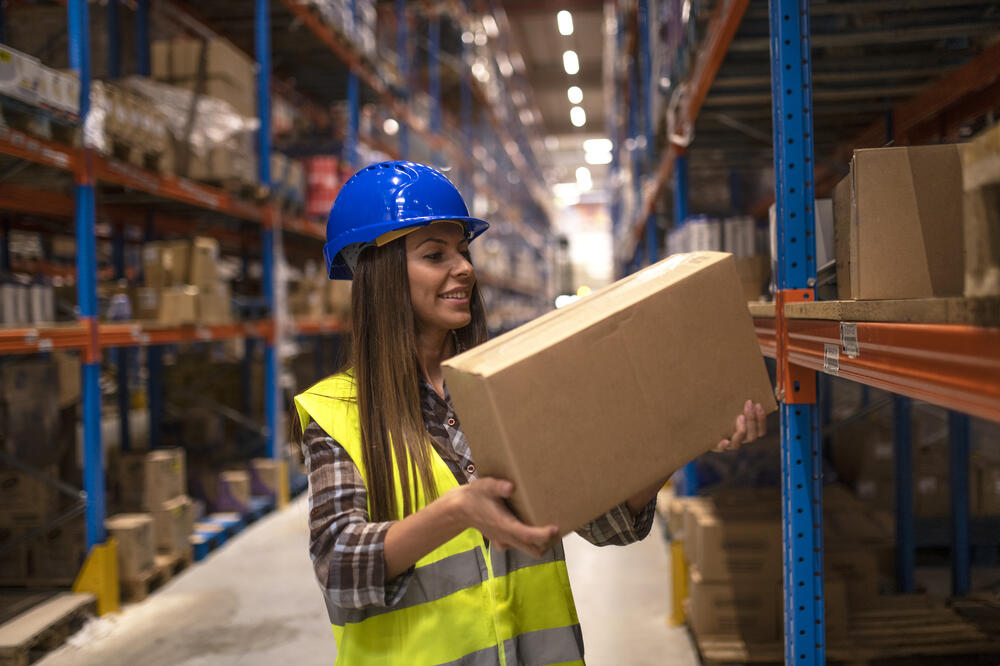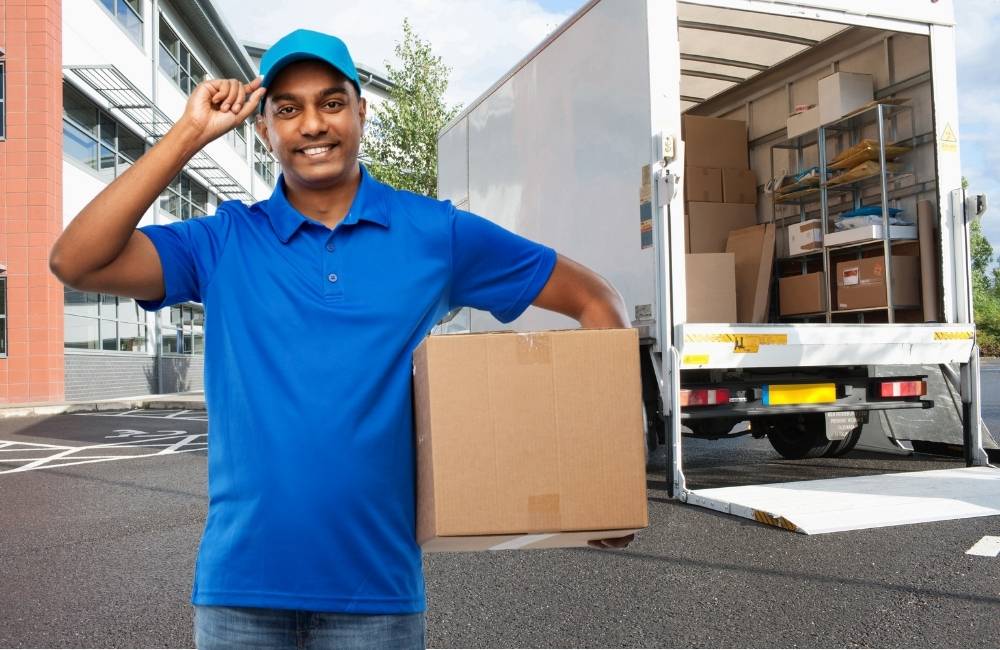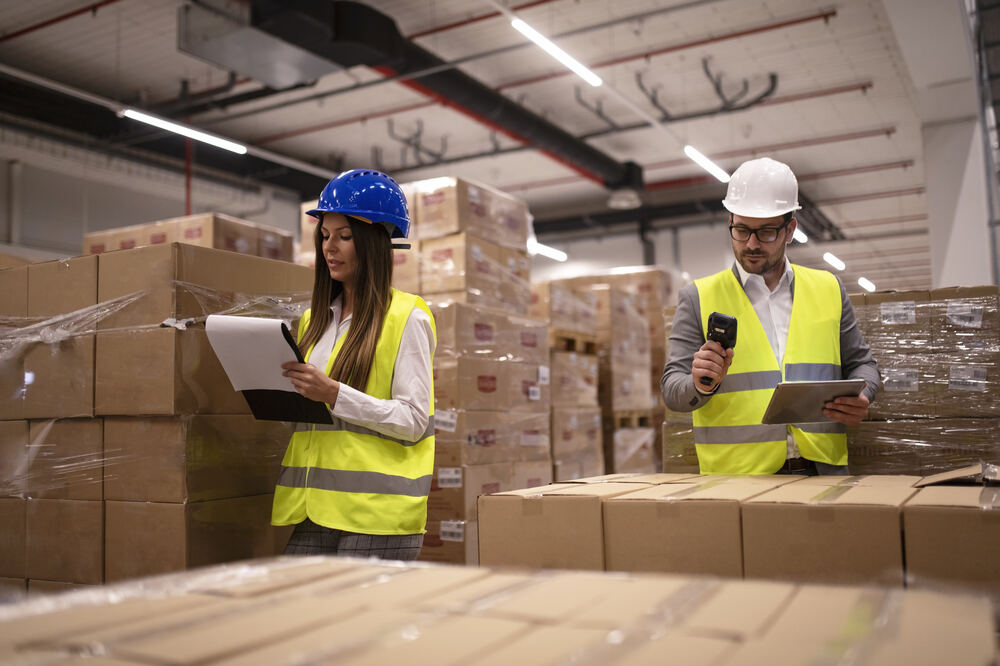As the global logistics industry continues to grow, choosing the right third-party logistics (3PL) provider has become increasingly vital—especially in a complex and competitive market like New York City. Whether you’re a fast-scaling startup or an established retailer, your logistics partner should be more than a vendor; they should be a strategic ally.
Before making a decision, here are 10 critical questions every business should ask when evaluating local 3PL providers in NYC:
Table of Contents
Key Takeaways✔ Ensure the 3PL provider offers services that align with both current and future logistics needs. ✔ Local expertise is critical to navigating NYC’s unique logistical challenges. ✔ A strong track record, backed by client feedback and results, reflects dependability. ✔ Licensing, insurance, and compliance are essential for operational security. ✔ Scalable solutions, transparent pricing, and proactive support separate top-tier providers from the rest. ✔ Start with research, referrals, and direct engagement to find the right logistics partner in NYC. |

10 Essential Questions for Hiring NYC Logistics Services
1. What Services Do They Offer?
Choosing a local logistics provider requires a clear understanding of what services they actually provide. Not every third-party logistics in NYC offers the same solutions, and the range of services directly impacts business efficiency. Whether it’s basic storage or end-to-end order fulfillment, a provider’s capabilities should match the company’s needs and scale.
Key Logistics Capabilities to Evaluate
- Warehousing and Storage: Safe and organized storage is essential, especially in tight urban environments like New York City. Companies should look for providers offering secure, climate-controlled, and scalable NYC third-party warehousing and fulfillment solutions.
- Order Fulfillment: 3PL services in New York City must be able to pick, pack, and ship orders quickly and accurately. This includes returns processing and quality checks to maintain customer satisfaction.
- Transportation Management: Some 3PLs handle their own fleet, while others coordinate with local couriers or national carriers. Understanding their transportation network is key for timely deliveries.
- Inventory Management: Systems should offer real-time updates to prevent stockouts and overstocking.
- Cross-Docking and Kitting Services: For businesses with custom packaging or product assembly needs, these services can reduce handling time and costs.
2. How Familiar Are They With NYC Logistics Challenges?
Operating in New York City comes with a unique set of logistics obstacles. From dense traffic to strict delivery windows, businesses need a third-party partner that understands the local terrain. Familiarity with the environment can save time, reduce delivery issues, and ensure smoother operations.
NYC-Specific Experience to Look For
- Traffic and Route Knowledge: 3PL services in New York City experienced in navigating New York’s traffic can better plan routes and avoid common congestion zones.
- Regulation Compliance: NYC has specific parking rules, commercial delivery restrictions, and safety regulations that must be followed to avoid costly delays or fines.
- Last-Mile Delivery Expertise: A seasoned 3PL in NYC will understand how to handle last-mile delivery in high-rise buildings, tight loading docks, and residential zones.
- Access to Local Hubs: Being near key transit points like JFK, LaGuardia, and Port Newark helps streamline shipping and distribution timelines.
3. What Is Their Track Record and Reputation?
Past performance is a strong indicator of how a logistics company will handle future needs. Reputation speaks volumes, especially in a competitive and fast-paced city like New York. Reviews, case studies, and references offer insight into reliability and consistency.
Ways to Assess Their Reputation
- Client Testimonials: Positive feedback from long-term clients suggests reliable service. Ask for references from businesses in a similar industry.
- Case Studies and Success Stories: 3PL services in New York City should be able to show specific results they’ve achieved, especially related to third-party shipping and distribution NYC challenges.
- Online Reviews and Ratings: While not the only source of truth, online reviews can highlight patterns in service issues or exceptional performance.
- Years in Operation: Longevity can reflect strong client relationships and consistent delivery of service.
- Industry Recognition: Awards or certifications from logistics organizations add another layer of credibility.
4. Are They Properly Licensed and Covered?
Trusted third-party logistics in NYC operate with full transparency and compliance. Proper licensing ensures that the company meets state and federal legal standards. Valuation provides protection in case of damage, theft, or loss—giving clients peace of mind.
Important Credentials to Confirm
- Operating Licenses: The 3PL should have up-to-date DOT, MC, or relevant NYC permits based on the services provided.
- Warehouse Valuation: Coverage should include liability, property damage, and loss protection within their facilities.
- Cargo Valuation: If the provider handles shipping, confirm they have cargo coverage for in-transit goods.
- Workers’ Compensation: Protects both the company and its employees, minimizing risk of legal complications.
- Bonding and Certifications: Additional credentials like bonded status or ISO certifications can indicate higher accountability.
5. What Technology Do They Use?
Technology plays a major role in modern logistics. The right tools help businesses track inventory, monitor deliveries, and optimize warehouse operations. A third-party logistics provider should be equipped with up-to-date systems that support accuracy and transparency.
Tech Features to Look For
- Inventory Management Systems (IMS): Real-time inventory tracking helps prevent errors, manage reorder levels, and streamline restocking.
- Warehouse Management Systems (WMS): These tools increase productivity and accuracy in picking, packing, and shipping processes.
- Transportation Management Systems (TMS): A good TMS ensures efficient route planning and live delivery updates.
- Customer Portals: Easy access to shipment status, order history, and inventory levels promotes better business decisions.
- Integration Capabilities: Systems should integrate smoothly with e-commerce platforms and ERPs.
6. How Do They Handle Scalability?
As a business grows, its logistics needs also evolve. Some companies experience sudden spikes during holiday seasons, product launches, or unexpected market demand. A third-party logistics in NYC provider must be ready to scale operations up—or down—without disrupting service or causing delays. Scalability is a critical factor in long-term success.
Indicators of Scalable Service
- Seasonal Capacity Planning: The provider should proactively prepare for high-volume periods by increasing storage space, adjusting workflows, and adding staff to handle surges in demand.
- On-Demand Warehousing: Access to flexible NYC third-party warehousing and fulfillment options allows businesses to scale storage needs without committing to long-term leases or oversized facilities.
- Adaptable Labor Resources: Scalable 3PLs maintain a network of trained warehouse staff and drivers they can call on when order volumes spike, helping to avoid delays.
- Flexible Technology Systems: A scalable fulfillment partner should use cloud-based systems that handle growing product catalogs, user access, and larger order volumes without errors or slowdowns.
- Support for Multi-Channel Fulfillment: Businesses selling through retail, e-commerce, and wholesale channels need a 3PL that can manage complex, high-volume workflows simultaneously.
7. What Are Their Average Delivery Times?
Fast and consistent delivery is often what separates a good logistics provider from a great one. In a city like New York—where customers expect same-day and next-day delivery—businesses need to partner with third-party shipping and distribution NYC providers that can meet tight timelines without sacrificing accuracy.
Delivery Efficiency Metrics to Examine
- Same-Day and Next-Day Options: These services are especially important for local e-commerce and retail operations, where fast delivery improves customer satisfaction and encourages repeat business.
- Order Cut-Off Times: 3PL services in New York City should clearly communicate the latest time a customer can place an order for same-day or next-day fulfillment to manage expectations and optimize workflow.
- On-Time Delivery Rates: A good 3PL should track and share their average delivery success rates, showing how often they meet promised delivery dates.
- Carrier Relationships: Established connections with a variety of shipping partners ensure that deliveries are made even if one network experiences delays.
- Handling Time: Efficient third-party logistics in NYC process and ship orders quickly after they’re placed—this is often the hidden driver behind fast delivery timelines.
8. How Do They Manage Customer Service and Communication?
Reliable communication is the backbone of a successful logistics partnership. Miscommunication is one of the most common causes of project failure, making clear and timely updates essential to daily operations. Businesses must be able to reach their 3PL quickly when issues arise and receive updates without having to chase them. A third-party logistics in NYC provider that prioritizes communication builds trust, prevents delays, and helps maintain workflow stability.
Service Features That Matter
- Dedicated Account Managers: Having a single point of contact ensures clients don’t get lost in a support queue and that their questions are answered quickly by someone who knows their business.
- 24/7 Support Availability: For businesses operating in different time zones or those with overnight needs, around-the-clock assistance can prevent costly downtime.
- Real-Time Order Tracking: Access to order status updates and inventory levels at any time allows businesses to plan better and provide customers with accurate delivery timelines.
- Issue Resolution Process: The provider should have a clear, structured process for handling mis-shipments, damaged goods, or unexpected delays, with fast follow-ups and accountability.
- Client Feedback Channels: A strong 3PL welcomes regular feedback and actively uses it to improve processes and service offerings.
9. What Are the Costs and Fee Structures?
Transparent pricing is essential when choosing a logistics partner. Some third-party logistics in NYC offer a low base rate but add unexpected fees later. To avoid surprises, businesses should understand exactly what’s included. However, costs can vary based on business needs, so it’s best to check with trusted providers like 3PL Logistics By Best for accurate, customized information.
Key Pricing Details to Clarify
- Storage Fees: Some of the best 3PL companies in NYC charge by pallet, cubic foot, or bin. It’s important to confirm how space is measured and billed, especially when considering NYC third-party warehousing and fulfillment costs.
- Fulfillment Fees: These cover the picking, packing, and shipping of orders. Charges may vary based on order volume, weight, or complexity.
- Shipping Costs: Ask whether the provider passes along carrier discounts or marks them up. Understand if shipping is billed per order or in bulk.
- Receiving Charges: Some third-party logistics in NYC charge for checking in and sorting inbound inventory. This is especially common for complex or mislabeled shipments.
- Custom or Add-On Services: Value-added services like kitting, gift wrapping, branded packaging, or handling returns may come with separate fees.
10. What Makes Them Different From Other Local 3PLs?
With so many logistics providers in New York, it’s not just about what they do—it’s about how they do it. The right partner brings something unique to the table. Whether it’s specialized technology, a faster delivery model, or expertise in a specific sector, those differentiators make a real impact.
Factors That Add Unique Value
- Specialized Industry Experience: Some of the best 3PL companies in NYC focus on specific sectors like fashion, food, or cosmetics. This means they understand unique compliance needs, packaging standards, and delivery timelines.
- Custom Tech Platforms: A third-party shipping and distribution NYC provider with proprietary tools can offer more transparency, smoother integrations, and better automation.
- Prime NYC Location: Third-party logistics in NYC based near major ports, airports, or bridges can move goods more quickly and reduce transportation costs.
- Sustainability Practices: Businesses focused on eco-conscious shipping may value providers that use recyclable packaging, electric vehicles, or carbon offset programs.
- Full-Service Add-Ons: Some 3PLs offer branding services, customer service integration, or retail-ready packaging—all from one place.

How to Find the Best Third-Party Logistics in NYC
Finding the right third-party logistics provider in a fast-paced market like New York City requires more than just browsing a website or reading service lists. Businesses need to approach the search with strategy, research, and a clear understanding of what to look for beyond standard offerings.
Here are a few tips that can help streamline the process and lead to better decisions.
✔ Start With Local Referrals
One of the most effective ways to begin the search of the best 3PL companies in NYC is by asking for referrals from other businesses in the area—especially those in similar industries or with comparable shipping needs. Local trade associations, chambers of commerce, or business networking events can also offer trusted recommendations. Hearing firsthand about real-world experiences can save time and point the search in the right direction.
✔ Visit Their Facility If Possible
Whenever practical, schedule an in-person or virtual tour of the provider’s warehouse or distribution center. Seeing their operations firsthand gives a better sense of how organized and scalable their systems are. It also provides a chance to ask specific questions and observe how their team handles real-time logistics processes.
✔ Compare More Than Just Price
While cost is always a factor, the cheapest option isn’t always the best long-term fit. Instead, evaluate how each provider adds value—through communication, responsiveness, or customization. A slightly higher fee may be worth it if the provider consistently delivers faster service, fewer errors, and better overall support.
✔ Test With a Trial or Short-Term Project
Before committing to a long-term contract, consider starting with a trial run or short-term engagement. This could be a seasonal fulfillment project or a small product line. A test period allows both sides to evaluate fit, workflow compatibility, and communication without major commitment upfront.
3PL: Third-Party Logistics Explained (FAQ)
How long does it take to get started with a 3PL?
The time to start working with a 3PL depends on the complexity of the setup. For a small business with a straightforward product line, onboarding can be fairly quick, sometimes just a few weeks. Larger companies with multiple product categories and warehouses may require more time for integration, inventory transfer, and process alignment. Many 3PL providers have dedicated onboarding teams to guide businesses through the transition. In most cases, the process involves sharing product data, setting up technology integrations, and conducting test shipments before going live.
What is the role of a 3PL in e-commerce?
For e-commerce businesses, 3PL providers handle crucial tasks like receiving inventory, storing products, and shipping orders directly to customers. They also manage order tracking, returns, and restocking, which helps online retailers maintain a seamless shopping experience. With the rise of online shopping, 3PLs have become essential partners in ensuring fast and reliable deliveries. They allow e-commerce companies to focus on marketing and sales while the 3PL takes care of the logistics.
How does 3PL differ from 4PL?
A 3PL provider focuses on handling logistics tasks like transportation, warehousing, and shipping. They’re directly involved in the physical movement and storage of goods. A 4PL, on the other hand, acts as a consultant or coordinator that manages multiple 3PL providers and oversees the entire supply chain strategy. While 3PL is more hands-on with shipments, 4PL takes a higher-level approach, providing a single point of contact for all logistics management.
What kind of businesses use 3PL services?
A wide range of businesses rely on 3PL services, from small e-commerce stores to large multinational corporations. Retailers often use 3PL companies to store and ship their products to customers more efficiently. Manufacturers use them to transport raw materials and distribute finished goods. Even startups and growing brands turn to 3PL providers to manage logistics without building their own infrastructure.
Can a small business use 3PL services?
Yes, small businesses often partner with 3PL providers to simplify their shipping and storage needs. By outsourcing logistics, they can focus more on product development, marketing, and customer service. 3PL companies can handle tasks like receiving inventory, picking and packing orders, and shipping them out. This helps small businesses compete with larger companies that have more resources.
Maximize Fulfillment Efficiency With a Trusted NYC Partner!
Businesses in New York City need more than just fast shipping—they need a logistics partner that understands the pace, scale, and complexity of operating locally. 3PL Logistics By Best delivers reliable, responsive solutions tailored to the unique challenges of New York City fulfillment and distribution. With deep knowledge of regional delivery zones and a hands-on team, this provider ensures smooth operations across every touchpoint. Support smarter growth with logistics designed specifically for New York City-based operations.
Contact 3PL Logistics By Best today to get started.


